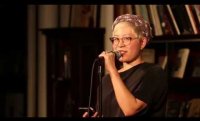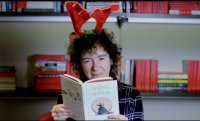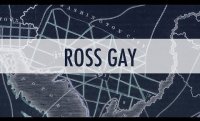Planning to write over the holidays? Finish your writing year up strong and head into 2019 resolved to send more work out into the world with the following contests in poetry, fiction, and nonfiction. The twenty contests below have deadlines at the end of December or in the first days of January.
Bauhan Publishing Monadnock Essay Collection Prize: A prize of $1,000, publication by Bauhan Publishing, and 50 author copies is given annually for an essay collection. Anne Barngrover will judge. Entry fee: $25. Deadline: December 31.
Bayou Magazine Poetry and Fiction Prizes: Two prizes of $1,000 each and a subscription to Bayou Magazine are given annually for a poem and a short story. Entry fee: $20. Deadline: January 1.
Boulevard Short Fiction Contest: A prize of $1,500 and publication in Boulevard is given annually for a short story by a writer who has not published a nationally distributed book. Entry fee: $16. Deadline: December 31.
Bright Hill Press Poetry Book Competition: A prize of $1,000, publication by Bright Hill Press, and 30 author copies is given annually for a poetry collection. Entry fee: $27. Deadline: December 31.
Crosswinds Poetry Contest: A prize of $1,000 and publication in Crosswinds is given annually for a poem. Tina Cane will judge. Entry fee: $20. Deadline: December 31.
Florida Review Jeanne Leiby Memorial Chapbook Award: A prize of $1,000 and publication by Florida Review is given annually for a chapbook of short fiction, short nonfiction, or graphic narrative. Entry fee: 25. Deadline: December 31.
Gemini Magazine Poetry Contest: A prize of $1,000 and publication in Gemini Magazine is given annually for a poem. The editors will judge. Entry fee: $7. Deadline: January 2.
Glimmer Train Family Matters Contest: A prize of $2,500, publication in Glimmer Train Stories, and 20 copies of the prize issue is given annually for a short story about families of any configuration. Entry fee: $18 Deadline: January 2.
Lascaux Review Prize in Short Fiction: A prize of $1,000 and publication in Lascaux Review is given annually for a short story. Entry fee: $10. Deadline: December 31.
Mississippi Review Prize: Three prizes of $1,000 each and publication in Mississippi Review are given annually for a poem, a short story, and an essay. Entry fee: $15. Deadline: January 1.
The Moth Poetry Prize: A prize of €10,000 (approximately $12,000) and publication in the Moth is given annually for a poem. Three runner-up prizes of €1,000 (approximately $1,200) each are also given. The winners will also be invited to read at an awards ceremony at the Poetry Ireland festival in Dublin in Spring 2019. Jacob Polley will judge. Entry fee: $13. Deadline: December 31.
New Rivers Press Many Voices Project Competition: Two prizes of $1,000 each and publication by New Rivers Press are given annually for a poetry collection and a book of fiction or creative nonfiction by an emerging writer. Entry fee: $25. Deadline: December 31.
Nowhere Magazine Travel Writing Contest: A prize of $1,000 and publication in Nowhere Magazine is given twice yearly for a poem, a short story, or an essay that “possesses a powerful sense of place.” Porter Fox will judge. Entry fee: $20. Deadline: December 31.
Press 53 Award for Short Fiction: A prize of $1,000, publication by Press 53, and 50 author copies is given annually for a story collection. Kevin Morgan Watson will judge. Entry fee: $30. Deadline: December 31.
Quercus Review Press Poetry Book Award: A prize of $1,000, publication by Quercus Review Press, and 15 author copies is given annually for a poetry collection. Sam Pierstorff will judge. Entry fee: $25. Deadline: December 28.
River Styx Micro-Fiction Contest: A prize of $1,500 and publication in River Styx is given annually for a short short story. Entry fee: $10. Deadline: December 31.
Tampa Review Danahy Fiction Prize: A prize of $1,000 and publication in Tampa Review is given annually for a short story. The editors will judge. Entry fee: $20. Deadline: December 31.
Tampa Review Prize for Poetry: A prize of $2,000 and publication by University of Tampa Press is given annually for a poetry collection. Entry fee: $28. Deadline: December 31.
Tupelo Press Dorset Prize: A prize of $3,000 and publication by Tupelo Press is given annually for a poetry collection. The winner also receives a weeklong residency at the Massachusetts Museum of Contemporary Art. Entry fee: $30. Deadline: December 31.
Whitefish Review Montana Award for Fiction: A prize of $1,000 and publication in Whitefish Review is given annually for a short story. Rick Bass will judge. Entry fee: $20. Deadline: January 1.
Visit the contest websites for complete submission details, including eligibility guidelines and length requirements. For a look at more writing contests with upcoming deadlines, visit our Grants & Awards database and submission calendar. Happy holidays, and happy submitting!









